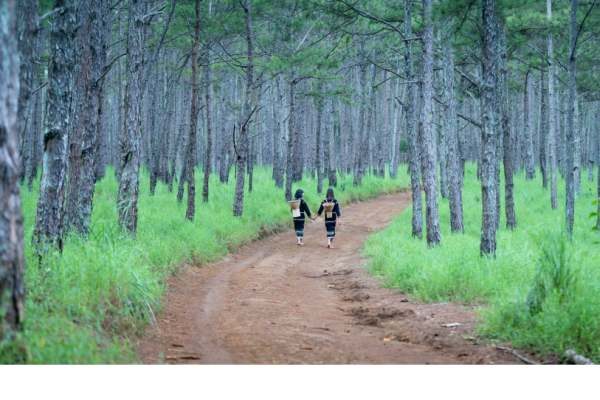Green Economies and Infrastructure
SDDirect provides cutting edge social development expertise to economic development and climate programmes.
We work with a range of stakeholders in the public and private sectors worldwide providing gender mainstreaming, institutional strengthening, and technical guidance.
We work in sectors ranging from climate resilience, inclusive urban development & infrastructure, women’s economic empowerment, to digital inclusion.
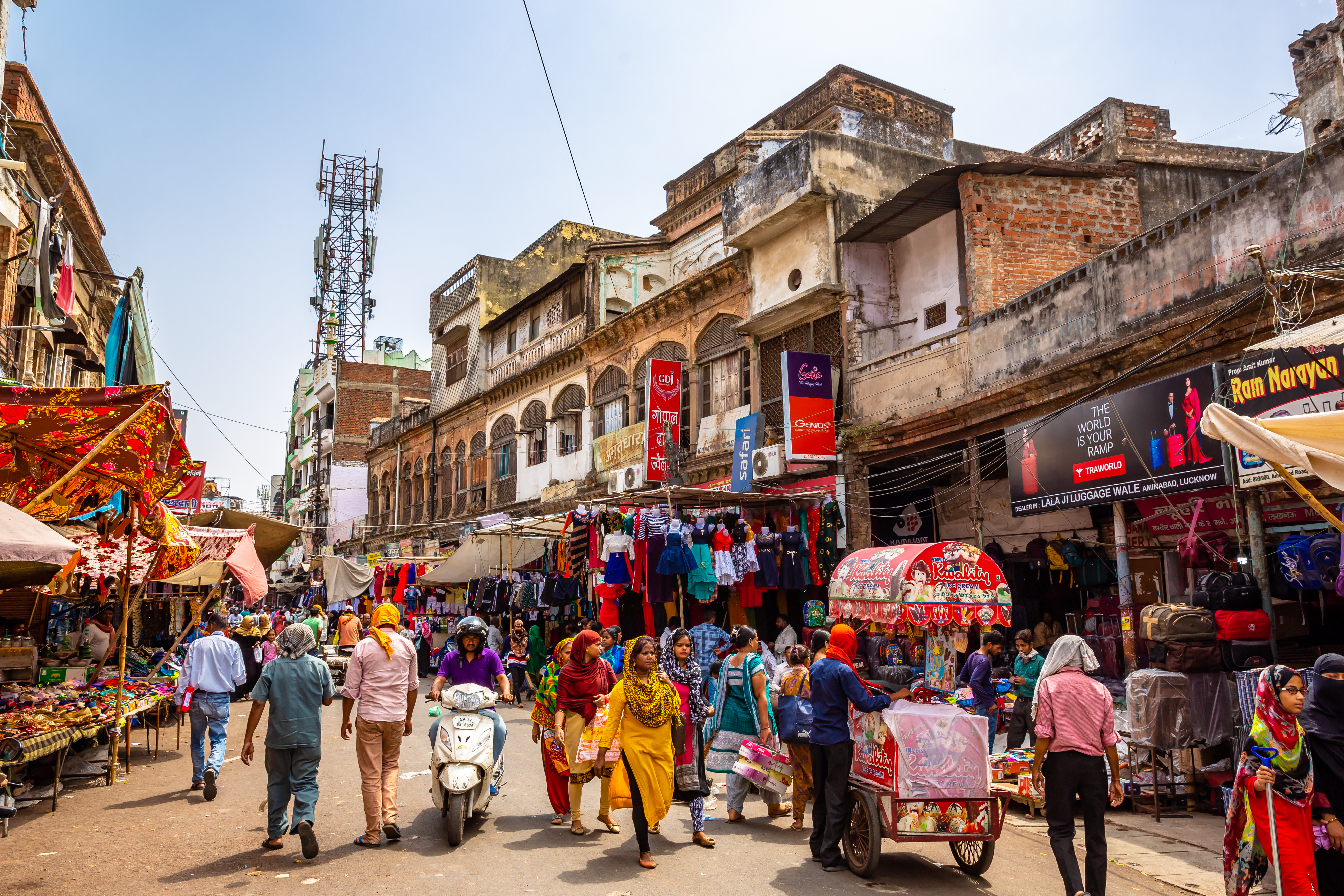
What is Green Economies and Infrastructure?
As the climate crisis deepens, novel technologies, expertise, and new energy sources are emerging, paving the way for ‘green economies.’
Beyond curbing emissions and adapting to climate shifts, a green economy combines climate resilience with social and economic benefits necessary for human progress. However, neglecting to draw from past lessons and knowledge could lead us to unintentionally recreate the imbalanced power dynamics that drive exclusion within these emerging green economies.
Our vision for green economies is one where environmental sustainability is achieved alongside inclusive prosperity and a just transition, where no one is left behind.

Our work in this area
We address the challenge of creating inclusive and prosperous green economies by collaborating with stakeholders in the public and private sectors worldwide. We bring innovative social development practice and experience in gender mainstreaming, programme delivery, research, policy and technical guidance across economic development and climate resilience programmes.
We promote inclusive cities and infrastructure as catalysts for shared progress. Women's economic empowerment forms a foundational pillar, fostering a level playing field of opportunities. Our work on digital inclusion ensures that the benefits of green economies reach every corner of society. We support the development of high-integrity voluntary carbon crediting where benefits extend meaningfully to women. We also support the private sector on a diverse range of social development issues, ranging from advice on gender-based violence and safeguarding risks; to supporting gender-lens and social impact investing.
Across all areas, we support disability inclusion in economic development and climate change programming, ensuring that attitudinal, environmental and institutional barriers that people with disabilities face are overcome.
If you would like to hear more about our work on Green Economies and Infrastructure (GEI), please reach out to Faraz Hassan, Head of Green Economies and Infrastructure Portfolio, Faraz@sddirect.org.uk.
What I learned about gender equality and Indigenous leadership at COP16
"The forest is everything to us".
Integrating gender into Inclusive Markets Development programmes
This report focuses on how to systematically integrate gender into Inclusive Markets Development (IMD), in order to support Christian Aid programme staff and partners in ensuring that they design gender-transformative and gender-sensitive market programmes.
International Financial Institutions and Women's Economic Empowerment: an evidence review
This WOW Helpdesk report compares how different International Financial Institutions promote women’s economic empowerment in their work.
Integrating a Gender Lens in Voluntary Carbon Markets
The Voluntary Carbon Market represents a huge financial flow - from corporates in the Global North looking to ‘offset’ their residual emissions, to carbon projects often based in the Global South in sectors such as forestry and sustainable agriculture, renewable energy, or cookstoves. Under the current drive for higher integrity and sustainable development outcomes in the Voluntary Carbon Market, there is a unique opportunity to drive climate finance towards integrated gender equality and climate outcomes.
Economic costs of discrimination against LGBTQI+ people
As a gay man in my thirties, I often wonder whether my sexual orientation has hindered my career at any point. I can remember being forced to come out on a work trip, a colleague commenting how I am “different” to other men, and a manager remarking on how my clothes are feminine. But have these attitudes and behaviour had any effect on my productivity and the economic output of the countries I have lived and worked in?
Sexual Exploitation & Harassment (SEAH) Infrastructure Tool
This tool will help Department for International Development (DFID) advisers, programme managers and Senior Responsible Officers (SROs) working on programmes that involve infrastructure to:
Violence against Women and Girls, Infrastructure and Cities
The overall purpose of the paper is to provide a framework for how to address violence against women and girls (VAWG) through programming and policy dialogue on infrastructure and cities. It aims to support
Pagination
- Page 1
- Next page
Our work in this area
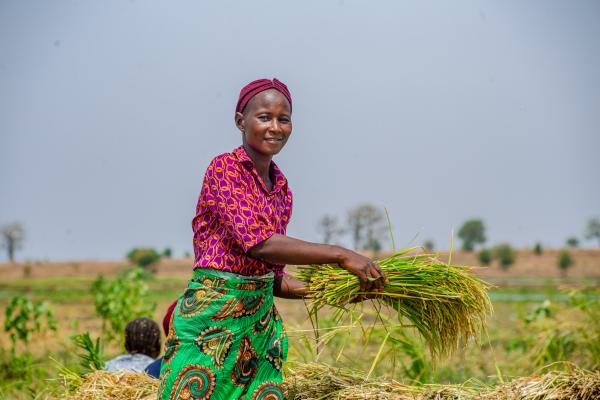 Propcom+ aims to support the transformation of Nigeria’s rural economy by addressing environmental, social, and economic challenges in the country’s food and land-use system. Propcom+ works with a diverse range of private sector partners to achieve these objectives. Social Development Direct has…
Propcom+ aims to support the transformation of Nigeria’s rural economy by addressing environmental, social, and economic challenges in the country’s food and land-use system. Propcom+ works with a diverse range of private sector partners to achieve these objectives. Social Development Direct has… SDDirect provide technical assistance to the European Investment Bank (EIB) supporting them realise their aspirations on gender equality and women’s economic empowerment through sector operations in low- and middle-income countries (LMICs).
SDDirect provide technical assistance to the European Investment Bank (EIB) supporting them realise their aspirations on gender equality and women’s economic empowerment through sector operations in low- and middle-income countries (LMICs).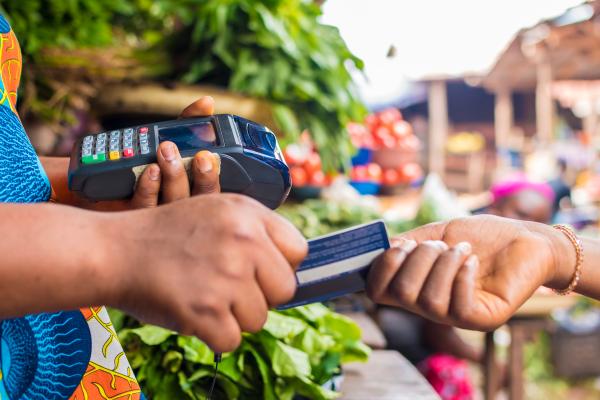 The Work and Opportunities for Women (WOW) programme is a 5-year flagship Foreign Commonwealth and Development Office (FCDO) funded programme that aims to improve women’s economic opportunities through business interventions in supply chains and economic development programmes. WOW is being…
The Work and Opportunities for Women (WOW) programme is a 5-year flagship Foreign Commonwealth and Development Office (FCDO) funded programme that aims to improve women’s economic opportunities through business interventions in supply chains and economic development programmes. WOW is being… The Nigeria LINKS Programme is a £67.5m, seven-year programme funded by the UK FCDO. It seeks to support the development of a vibrant and diversified economy in the three key northern Nigerian states of Kano, Kaduna and Jigawa, collectively acting as a powerful engine of northern economic growth.…
The Nigeria LINKS Programme is a £67.5m, seven-year programme funded by the UK FCDO. It seeks to support the development of a vibrant and diversified economy in the three key northern Nigerian states of Kano, Kaduna and Jigawa, collectively acting as a powerful engine of northern economic growth.…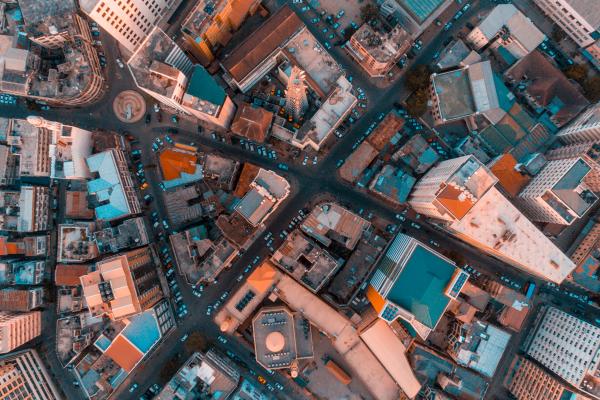 Through Infrastructure and Cities for Economic Development (ICED), SDDirect offered expertise to Department for International Development (DFID) advisers on how to integrate best practice in women economic empowerment, youth empowerment, violence against women and girls prevention, and disability…
Through Infrastructure and Cities for Economic Development (ICED), SDDirect offered expertise to Department for International Development (DFID) advisers on how to integrate best practice in women economic empowerment, youth empowerment, violence against women and girls prevention, and disability…- SDDirect provided research support on integrating gender as a core component of the voluntary carbon market (VCM). This project was part of the FCDO ASEAN Low Carbon Energy Programme (LCEP), which aims to support ASEAN’s efforts to shift towards low carbon energy through green finance flows and…
